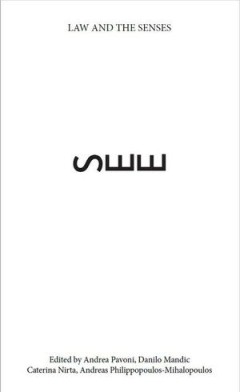Filter by

Taste
Taste usually occupies the bottom of the sensorial hierarchy, as the quintessentially hedonistic sense, too close to the animal, the elemental and the corporeal, and for this reason disciplined and moralised. At the same time, taste is indissolubly tied to knowledge. To taste is to discriminate, emit judgement, enter an unstable domain of synaesthetic normativity where the certainty of metaphys…
- Edition
- -
- ISBN/ISSN
- 9781911534334
- Collation
- -
- Series Title
- -
- Call Number
- -

See
Vision traditionally occupies the height of the sensorial hierarchy. The sense of clarity and purity, it is the one most explicitly associated with truth and knowledge. The law has always relied on vision and representation, from eye-witnesses to photography, and more precisely it can be understood as that which decrees what is visible and what is not, through its normative gaze. However, if la…
- Edition
- -
- ISBN/ISSN
- 9781911534648
- Collation
- -
- Series Title
- -
- Call Number
- -
 Computer Science, Information & General Works
Computer Science, Information & General Works  Philosophy & Psychology
Philosophy & Psychology  Religion
Religion  Social Sciences
Social Sciences  Language
Language  Pure Science
Pure Science  Applied Sciences
Applied Sciences  Art & Recreation
Art & Recreation  Literature
Literature  History & Geography
History & Geography